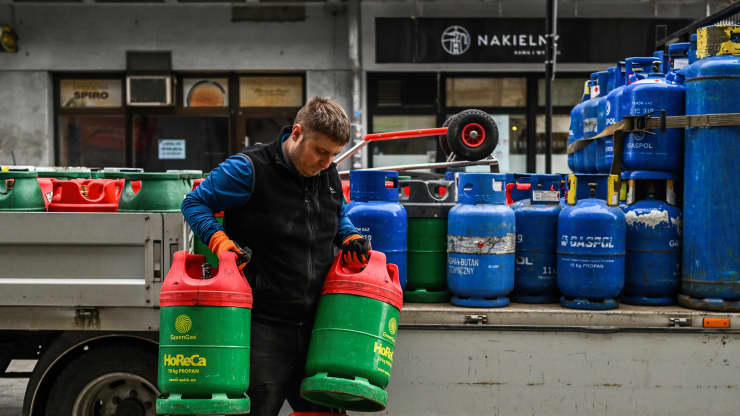The European Union is debating new sanctions against Russia — and this time they could hit the energy sector.

Three European officials, who did not want to be named due to the sensitivity of the talks, told CNBC that ministers will be looking at imposing energy sanctions on Russia when they meet Friday.
Speaking ahead of the meeting, Josep Borrell, the EU’s foreign policy chief, told CNBC’s Steve Sedgwick that “everything is on the table.”
One official told CNBC that ministers will discuss energy sanctions today, “but no major decision is expected.” While another said that both defensive and offensive sanctions against Russia would be looked at.
Representatives of Ukraine, the United States, Canada and the United Kingdom will also take part in the discussions.
A third official said that Friday was a good moment to take stock of where the West is on sanctions, and to show “the transatlantic unity and the good cooperation between the EU and NATO.”
Renew Europe, the liberal party at the European Parliament, said Thursday: “We call for a complete economic blockade banning imports from Russia, including oil & gas, and investments!”
Russia is a crucial source of energy for the European Union.
In 2021, the EU imported around 45% of gas from the country, according to the International Energy Agency. In 2020, Russian oil imports accounted for about 25% of the bloc’s oil purchases, according to the region’s statistics office.
Poland’s Prime Minister Mateusz Morawiecki said that Sberbank and Gazprombank, two major Russian banks, had not yet been hit by EU sanctions because they facilitate transactions relating to the supply of energy to the EU.
“This is unacceptable,” he said. “Poland demands sanctions to fully encompass all Russian entities via which the war is being financed.”
The United States has also said that energy sanctions are on the table, but the costs of pursuing them would have to be analyzed.
Implementing energy embargoes would likely mean higher costs for consumers in the U.S. and the EU in particular.
Emre Peker, analyst at consultancy firm Eurasia Group, told CNBC Thursday that energy sanctions on Russia would be painful.
“The longer that decision is delayed, and the more we’re out of winter and into spring, the easier it becomes to move,” Peker added.
The bloc has so far said that any ripple effects from sanctioning Russia are worth it, given that the Kremlin is not just attacking Ukraine, but also Europe’s democratic values.



